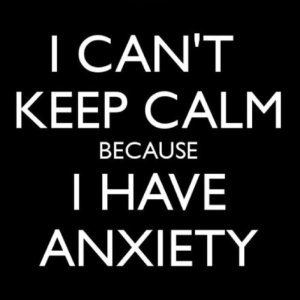Can Hypnosis Help With Social Anxiety?
Anxiety can be experienced at different levels, and although most people experience a relatively mild form of anxiety when facing particularly stressful situations (such as a speech or presentation) anxiety disorders are severe and can disrupt the day-to-day life of an individual. Anxiety can be brought on by a fear of something that happened, or what we think happened and dread happening again.
When individuals suffer from an anxiety disorder it may lead to avoidance of certain situations because they fear their anxiety may be triggered. This can in turn lead to relationship and/or career problems such as not being able to achieve potential job opportunities or promotions and being unable to develop personal relationships.
Types of anxiety
Generalized anxiety disorder
Individuals suffering from generalized anxiety disorder often anticipate tragedy and worry extremely about family, money and health. Generalized anxiety disorder interferes with daily life and is usually diagnosed when an individual spends at least six months worrying excessively about normal everyday problems. Other minor issues such as chores or appointments can also cause anxiety and for some, just getting through the day can be extremely stressful.
Panic disorder
Another type of anxiety disorder is panic disorder which is characterized by terror, which strikes suddenly without warning. Panic attacks are a common symptom of panic disorder, but not everyone who has a panic attack will develop panic disorder. Panic disorder is much more common than is generally recognized and affects a large proportion of the population.
Social anxiety disorder
Social anxiety disorder is defined by extreme anxiety and discomfort in social situations. According to some research, social anxiety (also known as social phobia) is the third most common psychiatric disorder after depression and alcoholism. Fear of being around other people, having to interact with them and being judged negatively by them are the common signs of social anxiety. Agoraphobia (the fear of open spaces, crowds, public places and/or travelling alone) is another severe form of anxiety.
Anxiety symptoms
As there are different types of anxiety, there are a number of different symptoms, however the most common include:
- dizziness and feeling light headed
- reduced attention span
- breathlessness
- restlessness
- irritability
- difficulty in concentrating
- loss of sexual interest
- headaches
- loss of appetite
- muscle tension
- difficulty breathing
- a tight feeling in the chest
- sweating
- difficulty sleeping
- poor performance
- diarrhoea
- palpitations.
Causes of anxiety
As each individual reacts differently to different pressures, determining one cause of anxiety is difficult. Research suggests there are a number of contributing factors, such as:
Brain chemistry
Some medication seems to alter the chemical imbalances in some individual’s brains, suggesting that there could be a chemical imbalance link to anxiety.
Life experiences
The development of anxiety disorders is believed to be linked to long term exposure to abuse, poverty, violence or drugs.
Personality
Research suggests that personality types may determine whether or not you are susceptible to developing an anxiety disorder.
Treatment for anxiety
Anxiety can often be treated by a combination of approaches. Medication, cognitive behavioral therapy and behavioral therapy are all common treatments for anxiety disorders.
Hypnotherapy can also be an effective treatment for anxiety disorders, it aims to seek out the root cause of the anxiety and change an individual’s perception of a past event or release emotion from it.
